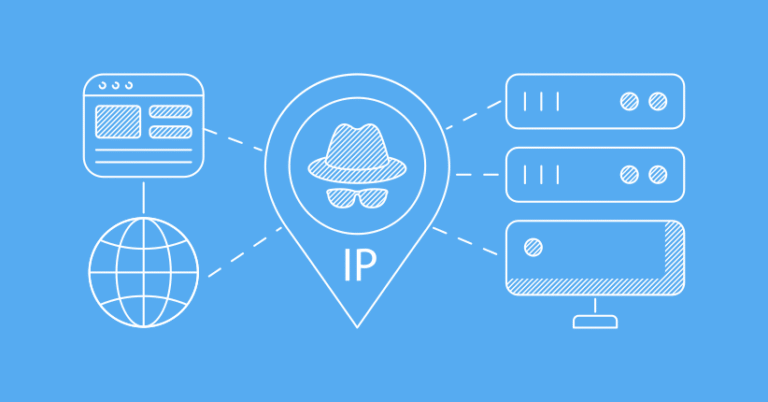2025 Tech Trends That Will Shape the Next Decade
As the world approaches 2025, several emerging tech trends are set to redefine societal structures and industry landscapes. The rise of artificial intelligence and machine learning promises to enhance operational efficiency, yet it also brings forth ethical dilemmas. Meanwhile, advancements in connectivity and health technology are shifting paradigms in urban development and healthcare access. These developments raise critical questions about the future. What implications will these trends have on daily life and business operations?
The Rise of Artificial Intelligence and Machine Learning
As organizations increasingly integrate technology into their operations, the rise of artificial intelligence (AI) and machine learning (ML) has become a pivotal trend shaping the future of various industries.
AI ethics, data privacy, and algorithmic bias are crucial considerations.
Machine learning applications, particularly in natural language processing and predictive analytics, enhance cognitive computing and AI in education, while autonomous systems necessitate robust AI governance frameworks.
Read more: Will AI Take Over the World? Myth vs. Reality
Automation and the Future of Work
The increasing integration of artificial intelligence and machine learning within organizations lays the groundwork for a significant shift towards automation in the workplace.
This transformation fosters a remote workforce, enabling flexibility and efficiency.
However, skill automation necessitates a reevaluation of employee roles, emphasizing the need for continuous learning and adaptation to ensure that human potential is maximized alongside technological advancements.
Advancements in Sustainable Technology
While the urgency to combat climate change escalates, advancements in sustainable technology are emerging as critical solutions for both industries and consumers.
Innovations in renewable energy, eco-friendly materials, and carbon capture enhance energy efficiency and waste reduction.
Moreover, green transportation and sustainable agriculture practices contribute to a circular economy, supporting conservation efforts and climate technology initiatives that collectively aim to foster a more sustainable future.
The Expansion of the Metaverse
The expansion of the metaverse is significantly influenced by advancements in virtual reality technology, which enhance immersive experiences for users.
As these technologies evolve, they are poised to redefine social interactions, enabling more meaningful connections in digital spaces.
This transformation could alter the landscape of communication and community engagement in unprecedented ways.
Virtual Reality Advancements
How might the relentless evolution of virtual reality (VR) reshape social interactions and economic landscapes within the expanding Metaverse?
The rise of immersive experiences is redefining the gaming evolution, offering users unprecedented engagement. As VR technology advances, it fosters new economic opportunities, allowing creators and businesses to thrive in virtual environments.
Ultimately, this transformation changes how individuals connect, collaborate, and conduct transactions in a digital realm.
Social Interactions Redefined
What new paradigms will emerge as the Metaverse expands and redefines social interactions?
As online communities flourish, digital empathy and emotional intelligence will become essential for fostering meaningful virtual friendships.
The evolution of social media will enhance remote collaboration and promote online activism through immersive virtual events.
This shift will reshape digital communication, allowing individuals to construct complex digital identities within a more interconnected society.
Quantum Computing Revolution
The Quantum Computing Revolution is marked by significant milestones in quantum supremacy, showcasing the technology’s potential to outperform classical computing.
Its applications extend to critical fields such as drug development, where complex molecular simulations could accelerate discovery processes.
Additionally, the implications for cryptography security raise urgent questions about data protection in an increasingly digital world.
Quantum Supremacy Achievements
While advancements in quantum computing have long been anticipated, recent achievements in quantum supremacy have marked a pivotal moment in the technology’s evolution.
These milestones demonstrate the practical potential of quantum algorithms, leveraging quantum entanglement to solve complex problems far beyond classical computing’s reach.
As researchers continue to explore this frontier, the implications for computation and information processing remain profound and transformative.
Applications in Drug Development
As researchers delve deeper into the capabilities of quantum computing, its applications in drug development are emerging as a transformative force in the pharmaceutical industry.
This technology enhances biomarker discovery, enabling the identification of targeted therapies with unprecedented precision.
Furthermore, quantum computing facilitates clinical trial optimization, streamlining processes and reducing costs, ultimately accelerating the delivery of innovative treatments to patients in need.
Impact on Cryptography Security
Advancements in quantum computing are poised to disrupt established norms across various sectors, particularly in the realm of cryptography security.
The ability of quantum algorithms to break conventional encryption methods raises significant privacy concerns, threatening the integrity of blockchain technology.
As these innovations advance, the necessity for quantum-resistant cryptographic solutions becomes critical to safeguard sensitive information and maintain public trust in digital systems.
Enhanced Cybersecurity Measures
The landscape of cybersecurity is evolving rapidly, necessitating robust measures to counter increasingly sophisticated threats. Enhanced cybersecurity strategies increasingly incorporate biometric authentication to strengthen user identity verification.
Additionally, the integration of threat intelligence allows organizations to anticipate and respond to potential vulnerabilities proactively. As cyber threats become more complex, these measures are essential for safeguarding personal and organizational freedoms in the digital realm.
The Internet of Things (IoT) Evolution
The evolution of the Internet of Things (IoT) is poised to transform both domestic and industrial landscapes by enhancing connectivity and operational efficiency.
Key trends such as smart home integration and advancements in industrial IoT promise to streamline processes and improve user experiences.
However, as these technologies proliferate, the imperative for enhanced data security becomes increasingly critical to protect against potential vulnerabilities.
Smart Home Integration
Integration of smart home technology reflects a profound shift in how individuals interact with their living environments.
The proliferation of smart appliances and advanced home automation systems enables users to optimize comfort, energy efficiency, and security.
This evolution not only enhances convenience but also empowers individuals by allowing them greater control over their spaces, fostering a more personalized and responsive living experience.
Industrial IoT Advancements
As industries increasingly adopt interconnected devices, advancements in Industrial IoT are transforming operational efficiencies and decision-making processes.
Predictive maintenance is becoming pivotal, allowing organizations to anticipate equipment failures and minimize downtime.
Additionally, edge computing enhances data processing speed and reduces latency, enabling real-time insights.
These innovations empower companies to optimize resources, increase productivity, and maintain a competitive edge in an evolving marketplace.
Enhanced Data Security
Significant advancements in data security are becoming essential as the Internet of Things (IoT) continues to expand.
Effective data encryption, compliance frameworks, and privacy regulations enhance cyber resilience. Biometric authentication and identity verification bolster secure transactions, while decentralized storage mitigates risks.
Additionally, advanced threat detection and continuous risk assessment will ensure that IoT ecosystems remain compliant and secure in an increasingly interconnected world.
5G and Beyond: Connectivity Redefined
How will the advent of 5G and the subsequent advancements in connectivity reshape the digital landscape?
The integration of 5G networks, edge computing, and satellite internet promises to bridge the digital divide. These wireless innovations will enhance broadband expansion, addressing connectivity challenges while fostering smart cities.
As society embraces these technologies, the potential for transformative change in daily life and economic activity becomes increasingly evident.
Virtual and Augmented Reality Applications
The expansion of connectivity through 5G and related technologies paves the way for groundbreaking applications in virtual and augmented reality (VR and AR).
These innovations enhance immersive gaming and education, facilitate virtual tourism, and enable remote collaboration.
Furthermore, they support training simulations, therapeutic applications, real estate visualization, historical recreations, interactive storytelling, and enriched social experiences, ultimately transforming how individuals engage with the world.
Health Tech Innovations and Telemedicine
As healthcare systems increasingly embrace digital transformation, innovations in health technology and telemedicine are redefining patient care and accessibility.
Wearable technology facilitates remote monitoring, enhancing patient engagement and chronic disease management. Digital health records and health data analytics enable personalized medicine and informed decision-making.
Furthermore, evolving telehealth regulations support virtual consultations, addressing mental health needs and expanding access to comprehensive healthcare services.
Conclusion
As the curtain rises on 2025, the interplay of these burgeoning tech trends will weave a complex tapestry of innovation and challenge. In this digital renaissance, the fusion of artificial intelligence, enhanced connectivity, and immersive experiences will not only redefine industries but also reshape the fabric of society. However, as we embrace these advancements, it is imperative to navigate the ethical labyrinth they present, ensuring that progress serves humanity rather than undermining it.






